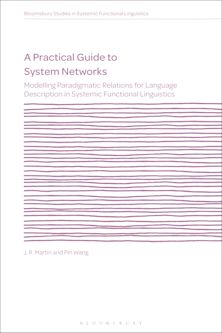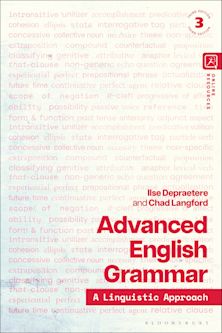Bracketing Paradox and Direct Compositionality
Montagovian Morphology for Bound Morphemes
Bracketing Paradox and Direct Compositionality
Montagovian Morphology for Bound Morphemes
This product is usually dispatched within 1 week
- Delivery and returns info
-
Free US delivery on orders $35 or over
Description
In Bracketing Paradox and Direct Compositionality: Montagovian Morphology for Bound Morphemes, Kazuhiko Fukushima resolves bracketing paradoxes in Japanese—morphological vs. semantic incongruity, which supposedly pose insurmountable obstacles to traditional and simple-minded morphology—within morphology (the lexicon) proper. This resolution is achieved through formal semantic apparatus developed by Richard Montague and his followers, hence the label Montagovian Morphology. More generally and theoretically, this book addresses the issue of the optimal interface between morphology, which deals with minimal units of meaning and their combination within a word, and semantics, which handles increasingly larger units of meaning in the sentence. Fukushima argues that the nature of the interface is directly compositional, requiring no complex syntactic supposition or manipulation other than putting words together as is. The author concludes that a semantically reinforced morphological—that is, lexical—approach is superior to a syntactic one for characterizing the mapping between morphological and semantic domains, and that syntax per se cannot supersede morphology.
Table of Contents
Preface
Chapter 1: Compositionality and Montagovian Morphology
Chapter 2: Size-Morphemes and Inalienable Possession
Chapter 3: Verbal Morphemes in Suspended Affixation
Chapter 4: The Negative Morphemes -nai and its Scope
Chapter 5: Compositionality and Bound Morphemes
References
Product details
| Published | Nov 30 2022 |
|---|---|
| Format | Hardback |
| Edition | 1st |
| Extent | 256 |
| ISBN | 9781498588102 |
| Imprint | Lexington Books |
| Illustrations | 240 b/w illustrations; 1 tables; |
| Dimensions | 9 x 6 inches |
| Publisher | Bloomsbury Publishing |
Reviews

ONLINE RESOURCES
Bloomsbury Collections
This book is available on Bloomsbury Collections where your library has access.


































